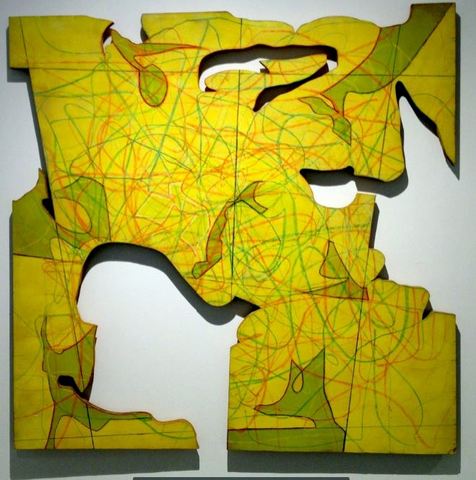ASCOTT, Roy
Roy F. Ascott was born at Bath, Somerset on 26 October 1934, eldest of the two children of Edwin Roy Ascott (6 July 1909-16 October 1965), a machinist, and his wife Muriel Eileen née Mead (27 April 1912-30 May 1998), who married at Bath in 1933. Roy was educated at the City of Bath Boys' School after which spent his National Service as a Pilot Officer in the Royal Air Force. He then studied Fine Art at King's College, University of Durham, now the University of Newcastle upon Tyne 1955-1959, under Victor Pasmore (1908-1988) and Richard Hamilton (1922-2011), and Art History under Sir Lawrence Burnett Gowing (1918-1991) and Quentin Bell (1910-1996), gaining his B.A. (hons) Fine Art in 1959. Ascott was appointed Studio Demonstrator 1959Ė1961 and then moved to London, where he established the radical Ground course at Ealing Art College, which he later established at Ipswich School of Art. After leaving Ipswich Civic College, now Suffolk College, he taught for a brief time at an Ipswich Secondary School, before being appointed President of Ontario College of Art in Canada. He was then Chair of Fine Art at Minneapolis College of Art and Design, before moving to California as Vice-President and Dean of San Francisco Art Institute. He was Professor for Communications Theory at the University of Applied Arts Vienna during the 1980s, and Professor of Technoetic Arts at the University of Wales, Newport in the 1990s where he established the Centre for Advanced Inquiry in the Interactive Arts which he followed with the establishment of the Planetary Collegium at Plymouth University in 2003. After various other appointments, in 2014, he established the Ascott Technoetic Arts Studio at DTMA, creating the Technoetic Arts advanced degree programme, taught jointly with the Shanghai Institute of Visual Art. The DeTao-Node of the Planetary Collegium was established in 2015 and he is a Doctor Honoris Causa of Ionian University, Corfu, Greece. Technoetics is a neologism introduced by Roy Ascott, who coined the term from techne and noetic theory, to refer to the emergent field of technology and consciousness research.
Works by This Artist

|
N-TropicóRandom Map IPaint on wood
|